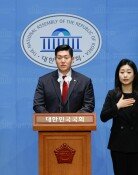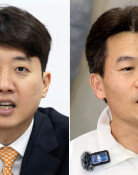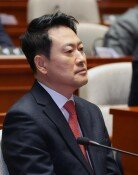Czar Putins visit to South Korea
Czar Putins visit to South Korea
Posted November. 12, 2013 07:55,
Russian President Vladimir Putins visit to South Korea, which starts Tuesday, is special in terms of format and timing. It is the first time that a Russian leader visits Seoul before others among the leaders of the four powers since the inauguration of a new South Korean president. It is also unusual that President Vladimir Putin, who has been pursuing diplomacy of equal distance with South and North Korea, visits Seoul before Pyongyang. From Russias perspective, his visit to the South is the same degree of abnormal act as President Park Geun-hyes visit to the U.S. followed by China, breaking the traditional practice of visiting in the order of the U.S., Japan and China.
Putin is nicknamed a Czar of the modern world. After taking power for two consecutive terms from 2000 to 2008, the Russian leader took his third term in office last year. As Russias presidential term was extended to six years following a Constitutional amendment, Putin is set to remain in power through 2018. Despite negative assessment due to his dictatorial image, Putin does not hesitate to resort to authoritarian rule, envisioning the revival of the Russian Empire. Due to his implementing of hardline external policy, the U.S.-Russia relations are at the lowest point since the Cold War era, but he elevated Russias stature by successfully arranging a deal on Syrias discarding of chemical weapons. Putin ranked No. 1 by defeating U.S. President Barack Obama in this years list of "the World`s Most Powerful by the U.S. business magazine Forbes.
Putin also has keen interest in Korean Peninsula issues. By visiting Pyongyang in 2000, Putin secured from then North Korean leader Kim Jong Il moratorium in Pyongyangs test-firing of long range missiles. For this reason, watchers in Russia widely predicted Putin would meet with Kim Jong Un first by visiting Pyongyang before Seoul. His visit to South Korea prior to the North could be seen as his denial of Kim Jong Uns policy to pursue in parallel nuclear weapons and economic development. Attention is also focusing on what the Russian head of state will say toward the North during his visit to Seoul.
Putin achieved annual average economic growth of 7 percent during his first and second terms in office. But the Russian economy is currently in a slump this year due to falling oil prices and a lackluster reform drive. Russia only posted 1.8 percent in economic growth rate this year, and thus dark clouds are cast over Putins plan to elevate his countrys GDP to the fifth in the world by 2020. Russia seeks to use expansion of cooperation with South Korea as breakthrough for its economic revival. President Parks Eurasia Initiative also gets more feasible only with Russian endorsement in place. Putins visit is a rare opportunity through which South Korea can secure practical economic gains and expand international collaboration for North Korea affairs.
Editorial Writer Bhang Hyeong-nam (hnbhang@donga.com)







